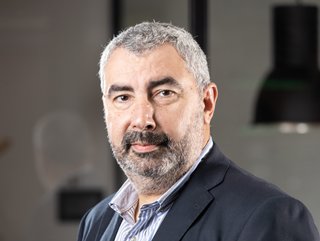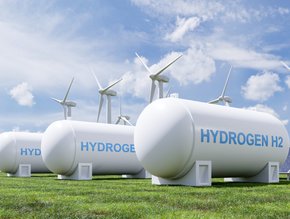Q&A: Schneider VP Cloud & Service Providers Thierry Chamayou

Last year, the European Commission formally released the reporting scheme to rate the sustainability of data centres in the EU. This secondary legislation creates a reporting scheme for data centres and represents the first phase in the establishment of an EU-wide scheme to rate the sustainability of EU data centres. The Energy Efficiency Directive (EED) came into effect in October 2023.
The framework aims to advance energy efficiency and mitigate climate change. It is part of the EU’s Green Deal objectives and encompasses the fit for 55 objective, which aims to reduce greenhouse gas emissions by at least 55% by 2030.
Thierry Chamayou, VP Cloud & Service Providers at Schneider Electric, says that the complexity of new regulations coming down the line means that operators must move quickly to understand and comply with the new measures that will affect their business.
“Under the EED, operators will have a responsibility to make a specified set of information public as well as an additional set that will be private,” he said. “Today, which information will be made publicly available and the definition of publicly available remains unclear. All the information will form part of an EU-level database that will collect this information and other details, publishing them in an aggregated form, to rate the sustainability of data centres.”
In this Q&A with Energy Digital, Theirry outlines how properly understanding the EED enables sustainable practices.
Q. What benefits will the EED bring?
The ultimate aim of the scheme is to create a baseline definition for a sustainable data centre based on common metrics. These interventions can result not only in a considerable reduction of energy and water consumption but also in the promotion of the use of renewable energy, an increase in the efficiency of the grid, or in the reuse of waste heat in nearby facilities and heat networks.
As part of the updated EED, data centre owners and operators with a minimum installed IT capacity of 500kW must disclose their energy performance. Data centre owners and operators are also expected to provide information on floor area, installed power, data volumes, energy consumption, power usage effectiveness (PUE), temperature settings, waste heat usage, water consumption and renewable energy usage. Software will become integral to this reporting to monitor data centre sustainability. This includes integrated BMS, DCIM and smart grid management to create a human to machine interface.
But this is, of course, just the start, given a directive does not automatically become law and now it is down to national governments to transpose the directive into national law. At the European level, operators are still required to deliver the first reports this year using 2023 data. But in conjunction with pan-European associations such as The European Data Centre Association we are working ahead by building a reporting regime that minimises work and differentiation.
Q. What impact will the EED have on data centre operators?
In anticipation of the EED’s implementation, the data centre industry must align on standardised metrics and best practices for improving sustainability. Collaboration and industry-wide consensus will be key in achieving these objectives. Schneider Electric, as a global impact business, stands ready to assist organisations in not only complying with the EED but also in actively contributing to the development of sustainable practices and metrics. Schneider Electric initially announced its industry-first framework for data centre sustainability last year and has made a concerted effort to help standardise sustainability reporting across the sector.
To-date, the data centre industry has never had a standard set of reporting metrics. This lack of standardisation makes it impossible for operators and customers to evaluate the status and progress of sustainability and to make progress creating a standardised set of metrics has become essential.
As such, Schneider Electric has created an industry-first Environmental Sustainability Metric Framework, addressing five key areas of impact including energy, greenhouse gas emissions, water, waste, land and biodiversity.
Q. How will this work for data centres of different sizes and at different points in their sustainability roadmaps?
Many data centre companies are at different stages of their sustainability journey, and the whitepaper outlines the metrics across three reporting stages: beginning, advanced and leading. With this framework, we believe we are empowering the industry to take action and that data centre operators must address all these key areas to create the sustainable data centres of the future.
The most important step any operator can take is to acknowledge where they are and to begin to address their environmental impact. With the proposed sustainability framework from Schneider Electric and with our solutions helping customers navigate the reporting stages we are there to support them by being their partner and help them meet their targets.
*******************
Make sure you check out the latest edition of Energy Digital Magazine and also sign up to our global conference series - Sustainability LIVE 2024.
*******************
Energy Digital is a BizClik brand.
- Virgin Media O2 Emission Reductions Same as 15,000 HomesTechnology & AI
- Sustainable Filters Cut Apple’s Data Centre Energy by 35%Technology & AI
- Energy & Logistics Key Driver of F1’s 2030 Net Zero TargetsSustainability
- What's Apple’s Promise on Clean Energy and Water Investment?Renewable Energy






